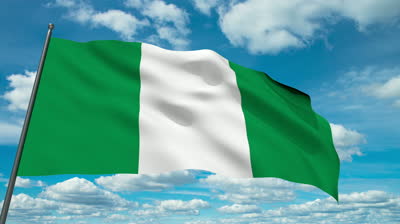By Mohammed Al-Bishak
No sooner had Premium
Times published on Monday, August 3, 2015, the first part of its
interview with erstwhile President Olusegun Obasanjo than it went viral. Though
the immediate context of the interview was the publication of Obasanjo’s
controversial trilogy entitled My Watch, the questions from
the interviewers were forthright and wide ranging, and the responses quite
interesting. Early in the interview, Obasanjo devoted considerable time and
sentiments to an evaluation of a controversial government contractor, Emeka
Offor, and his activities.
*Emeka Offor
“Take for example the decision on privatizing all
refineries”, remarked the former president in respect of certain decisions he
took in the days of his administration which were reversed by the succeeding
Umaru Yar’Adua governemnt which he had handpicked. “I explained (in my memoirs)
that what I met were refineries that were not working, refineries that were
given to an amateur for repairs, for maintenance, what they call turn-around
maintenance, to the company of the Emeka Offor group. Where has Emeka Offor
maintained refineries before? Where has he? That’s what we met. So, refineries
were not working.”
The diligent team of reporters tried to find out from him why he
did not bother to recover the huge amounts paid to Offor’s companies, and the
retired army general, noted for ebullience, surprisingly sounded helpless
before a mere civilian, a mere government contractor, almost half his age. Here
are his words: “ (Recover money from)a man who was paid upfront? He had people.
He got some police….People were there. And Emeka Offor, after I left (office),
became friends with every government that has come”. Offor was, no doubt,
friends with the Yar’Adua and Goodluck Jonathan governments. With this
interview, Obasanjo is strongly warning the new Muhammadu Buhari administration
to avoid controversial contractors like a plague. Otherwise, they would ruin
the new government they way they destroyed governments before it. I should
think there is merit in the wise counsel because Buhari is globally recognized
for high personal integrity, and his government is the last hope of the
Nigerian people to get out of the corruption cancer which has metastised all
over the country.

*Buhari and Obasanjo
It is necessary to explain the relationship between Offor and the
refineries. Offor founded a firm known as Anchoff Strongholds which was a
clearing agent for the Warri Petroleum Refinery and Petrochemicals Company
(WPRC) and later became its supplier. Between 1993 and 1994 it stunned the
petroleum industry worldwide by becoming the first African company to carry out
a turn-round maintenance (TAM) on the 125,000 barrels per day WRPC. It was
assisted by Gidado Idris, then permanent secretary in the Ministry of Petroleum
Resources, who was to become chairman of all of Offor’s companies. But
practically no work was done. A probe led by Aret Adams, the best group
managing director of the Nigerian National Petroleum Corporation (NNPC) ever,
was instituted. The report recommended the dismissal of the WRPC managing
director, Dr Owokalu, for his role in the scandal. The government acted
promptly. The report also recommended the blacklisting of Anchoff Strongholds
and its promoters and their ban from ever doing business with the NNPC. It was
accepted.
But in the typical Nigerian fashion, the latter recommendations were
circumvented. Anchoff promoters formed a new company and named it Chrome.
Meanwhile, Gidado Idris had taken over from Aminu Saleh as the new Secretary to
the Government of the Federation under General Sani Abacha’s military
dictatorship. Chrome was awarded the contract to do the TAM on the
210,000barrel per day Port Harcourt Refinery and Petrochemical Company, which
is much bigger than the Warri refinery whose TAM had become an international
scandal. Ever since then, all the country’s refineries have become comatose.
This is the background to Obasanjo’s anger over the sweetheart deals between
various Nigerian governments and Offor.
Yet, I have tremendous difficulties with the impression which ex
President Obasanjo has sought to give about his relationship with Offor. There
is overwhelming evidence that Obasanjo not only empowered Offor but went out of
his way to do so; in the process he violated all known rules and ethical
standards. I would like to cite just an example which I know pretty well: the
Joint Development Zone (JDZ) between Nigeria
and the twin island
of Sao Tome and Principe.







